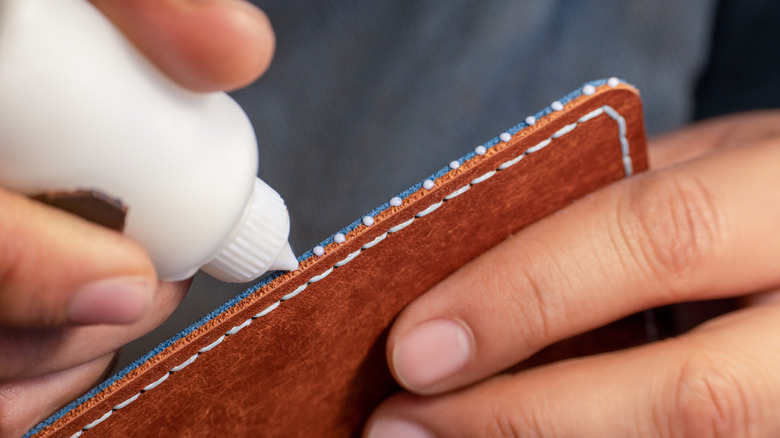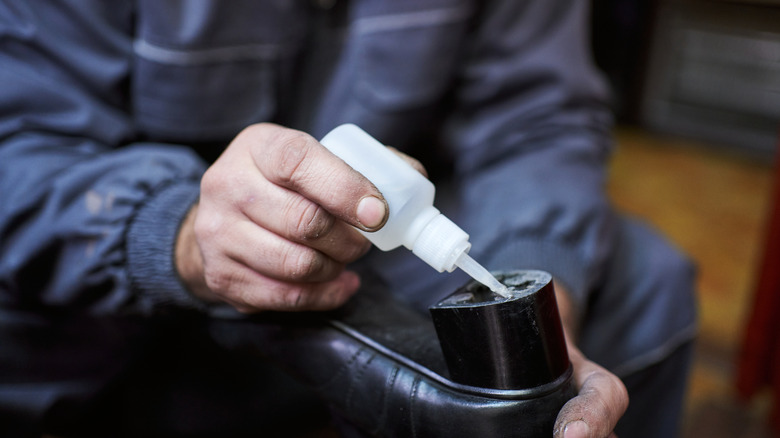How To Choose The Best Type Of Glue For DIY Projects That Involve Leather
We may receive a commission on purchases made from links.
We all have those beloved items that we've had for years, decades even. They're well-worn — and showing signs of it. Maybe it's a shoe with a flapping heel, a leather jacket with loose seams, or a leather purse with a tiny tear. Before you toss them, consider using a leather adhesive to repair them or repurpose them into a DIY project (perhaps a lounge chair made from recycled leather belts).
Just like how there are the best wood glues for home improvement projects, you'll also run into a hierarchy of leather glues. All leather adhesives are not created equal — and there's likely something for your specific needs. Ask yourself: What item am I working with? Does the glue need to dry clear? Do I need something waterproof or water-resistant? How much wear and tear will the item undergo? And how quickly do I need the glue to dry?
The two main categories of adhesives for leather projects are glues and cement. Leather glues are ideal for general crafts and repairs, strong enough for most of your needs. You typically apply it to one surface and press that surface onto another. These glues usually dry clear and are flexible, allowing you to stitch over the glued areas. Leather cement is applied to both surfaces, forming a strong, permanent bond. The International Leather Club says cement is so strong that the "leather fibers will tear before the glue separates." One important difference between these two is that water-based glues tend to be lower in volatile organic compounds (VOCs), which can cause headaches and nausea, than solvent-based cements. Consider protecting yourself with a mask when using cement.
Additional factors to consider when choosing a leather adhesive
Now that we understand the basic differences between leather glues and cements, what else do we need to consider? Items that get washed or are regularly in wet conditions need a waterproof, rather than water-resistant, adhesive. Note to self: Consider the right way to launder your leather jacket before choosing a glue for it. Leather Jacket Shop, a maker of leather jackets and bags, recommends Fiebling's Leathercraft Cement when working with thick leather.
This product is washable before it dries (i.e., forgiving for non-professionals), but still forms a strong bond. The International Leather Club recommends Tandy Leather Eco-Flo Weld Adhesive, which has a thin consistency that's ideal for projects that require sewing over the glue. For items — like shoes — that will endure more wear and tear, the International Leather Club and Leather Jacket Shop both recommend Aleen's 15594 Leather & Suede Glue, which can bond leather with other fabrics. If you want a stronger hold Barge All-Purpose TF Cement is commonly used among cobblers, but is easy enough for non-professionals to use.
Another consideration is your application needs: Do you need a tip for projects that require precision, or do you need a brush to spread glue across large areas? Some adhesives come in one or the other, while some are available in both. Figure out what your project needs and buy accordingly. The bottom line is that the specific adhesives mentioned here are among the most popular, but leather experts will attest that the best glue really is dependent on the factors your project needs.

